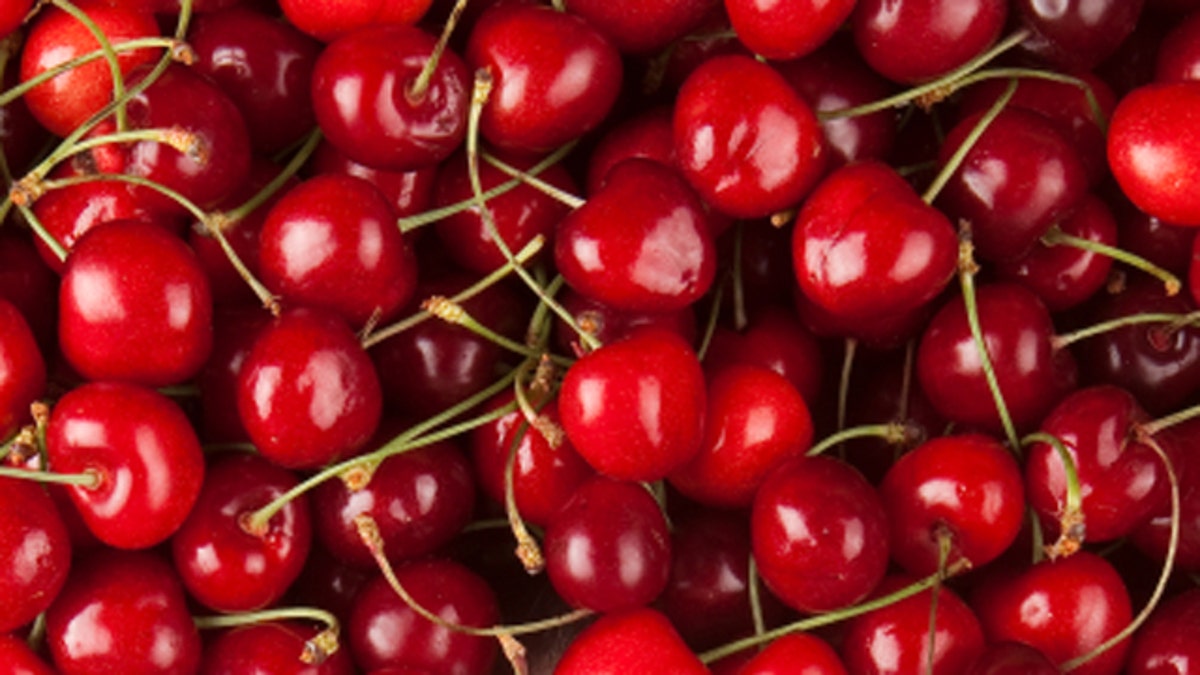
(iStock)
Cherries may no longer be for just topping off ice cream sundaes; in a new study of people with gout, eating the fruit was linked with a 35 percent to 75 percent lower risk of having an attack.
While adopting a cherry regimen sounds pleasant enough, the study's lead author warns that the new study does not prove cherries prevent gout attacks, and he said patients should stick with their current gout medications.
"They can go out and eat the cherries, but they shouldn't abandon their medical treatment at all," said Yuqing Zhang, a professor at the Boston University School of Medicine.
Gout arises when uric acid crystals build up in the joints. The body produces uric acid when it breaks down purines - substances found naturally in the body, but also in certain foods, like organ meats, anchovies, mushrooms and some seafood.
Anything that boosts the production of uric acid, or slows its clearance, also raises the risk of gout. Obesity, high blood pressure, diabetes and kidney disease are some examples.
Doctors have reported that some patients recommend cherries to prevent gout attacks, but the connection has only been studied a few times before, according to Zhang.
His group's preliminary investigation, published in the journal Arthritis & Rheumatism, is just the first step in understanding the link between eating cherries and gout risk, he told Reuters Health.
For their study, Zhang and his colleagues recruited gout patients over the Internet to take online surveys about their attacks.
All the participants had had a gout attack in the last 12 months, had been diagnosed with gout by a doctor, lived in the U.S. and were at least 18 years old. They also had to release their medical records to the researchers.
For the next year, the gout patients filled out surveys every time they had an attack.
The survey asked questions about the symptoms, the drugs used to treat the attack and about certain risk factors, including what they had eaten.
The patients also took similar surveys at the beginning of the study, and every three months while it was underway.
Of the 633 gout patients enrolled in the study, 224 said they had eaten fresh cherries during the year, 15 said they had consumed cherry extract and 33 had both.
During the year, the researchers collected information on 1,247 gout attacks, which works out to about two per patient.
Overall, the researchers found that eating cherries over a given two-day period was linked to a 35 percent decrease in the risk of having a gout attack during that period, compared to not eating cherries.
Consuming cherry extract was tied to a 45 percent risk reduction, and eating both fresh cherries and extract was tied to a 37 percent lower risk.
The biggest risk reduction, however, came with eating fresh cherries while taking the anti-gout medication allopurinol (Lopurin, Zyloprim). That combination was linked to a 75 percent reduction in the risk of a gout attack.
There are a few possibilities for why these associations exist, researchers say. One is that vitamin C, which is found in cherries, can influence the amount of uric acid in a person's blood, according to Dr. Allan Gelber, who co-wrote an editorial accompanying the study.
But Zhang said there are still a lot of questions to answer and more studies to be done, including a randomized controlled trial - considered the most rigorous way of demonstrating that a specific substance is responsible for an effect.
Gelber, an associate professor at Johns Hopkins University School of Medicine in Baltimore, said the study also shows that a patient's activities influence their risk of a gout attack - not just their medication.
"It educates the reader that he or she can do something in his or her daily behavior to diminish gout risk. The patient is in the driver's seat," he said.








































